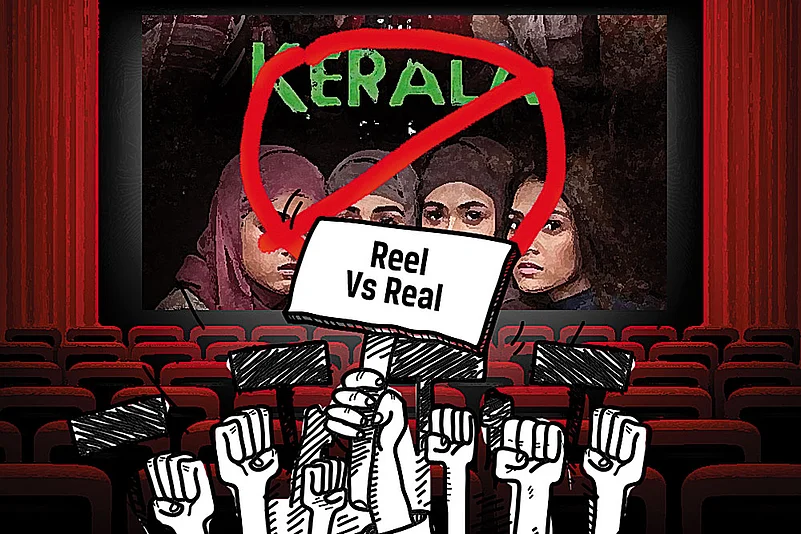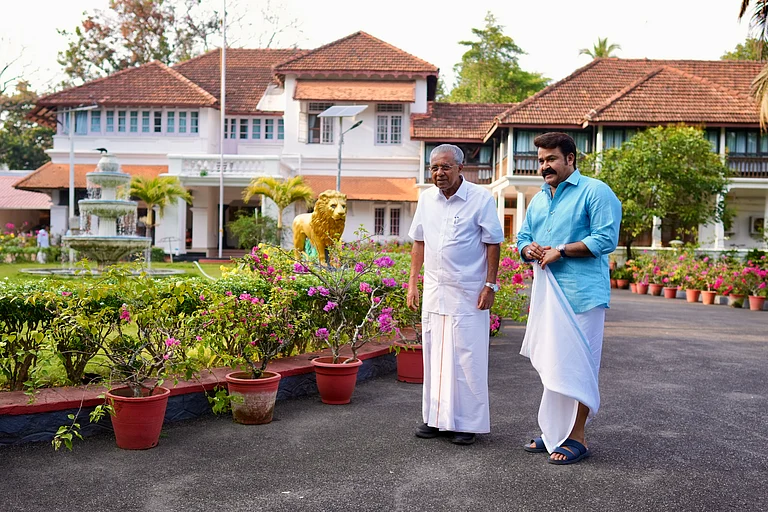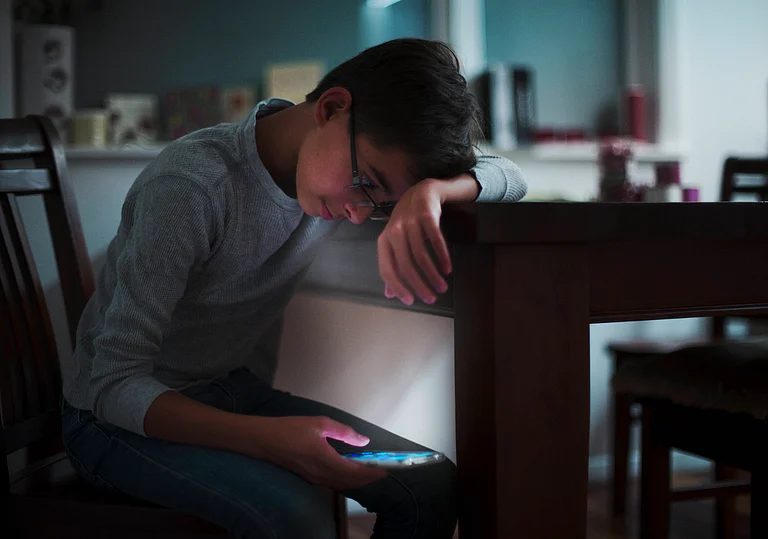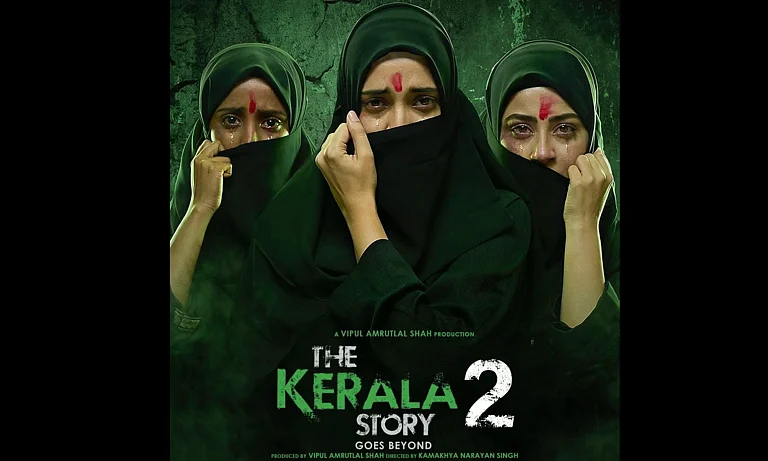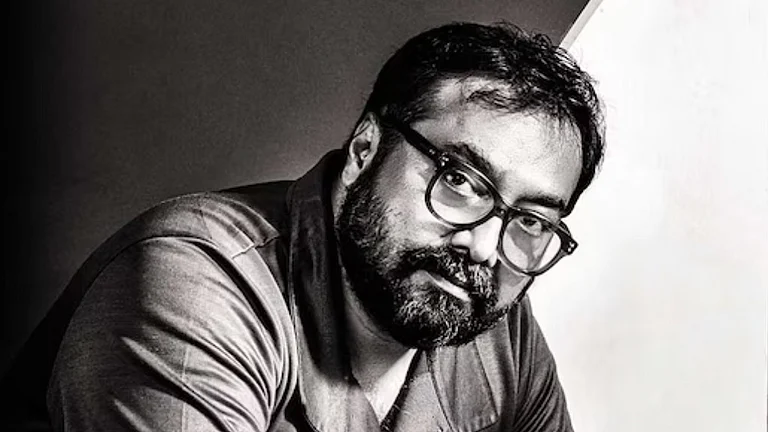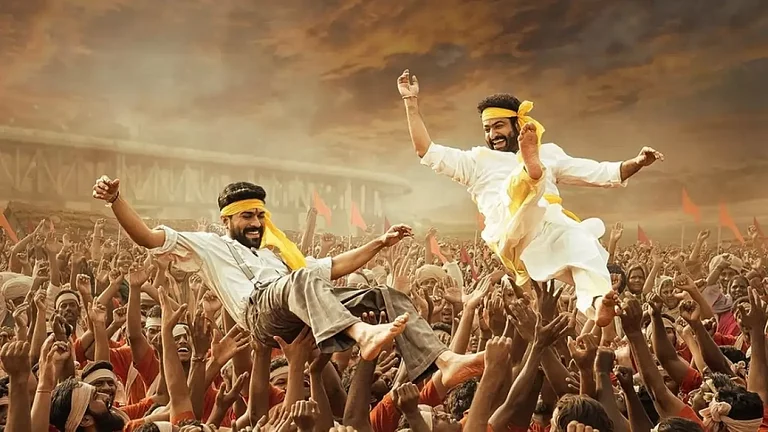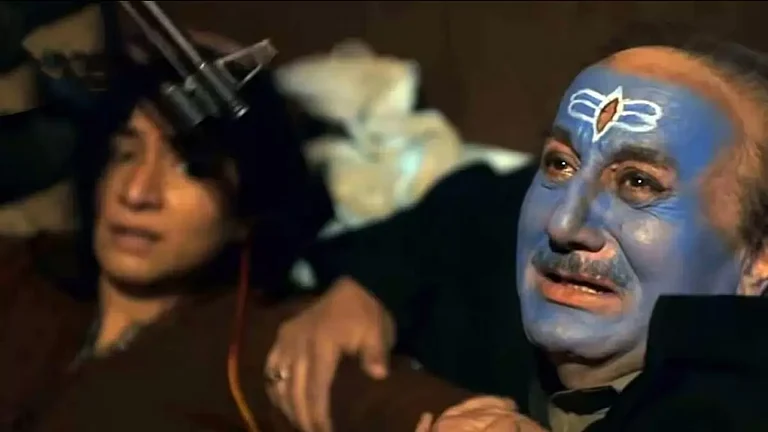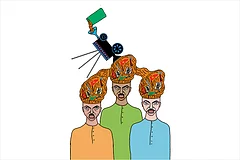
The Kerala Story released in May last year, came under fire for its alleged endorsement of the love jihad conspiracy theory, stirring up a political storm across the nation. While PM Narendra Modi said the movie “exposed the ugly truth of terrorism”, Kerala CM Pinarayi Vijayan, among other opposition leaders, criticised it for propagating communal disharmony. As all 20 constituencies of Kerala go to the polls in the second phase of Lok Sabha elections, it remains to be seen how the “propaganda movie,” will impact voters’ decisions.
On April 30, 2023, Nazeer Hussain, a Malayali software engineer residing in the US, posted an offer on Facebook that quickly went viral. He pledged Rs 10 lakh to anyone who could provide the names and addresses of women who purportedly converted to Islam and joined the Islamic State (IS), as depicted in the teaser of the film The Kerala Story. This post triggered a controversy soon after the trailer of the film was released.
The trailer claimed that 32,000 women from Kerala had undergone conversion and joined the IS. Hussain’s offer was open-ended; individuals did not need to provide details of all 32,000 women to qualify for the prize money. Even those who could furnish details of 10 women were eligible. He also made it clear that only three Malayali women—whose names and details are publicly known—had converted to Islam and joined IS: Merin Jacob alias Mariam and Nimisha alias Fatima who are married to brothers Bestin Vincent and Bexon Vincent, natives of Palakkad. The third woman is Sonia Sebastian married to Abdul Rashid Abdulla, both natives of Kasaragod. Hussain urged people to refrain from baseless accusations against a particular community, particularly in the context of the love jihad, which was debunked by the Kerala and Karnataka police in their investigations.
Hussain’s post marked the beginning of a series of “lucky draws” aimed at those supporting the claim that 32,000 Malayali women had joined the IS. One of them, C Shukkur, a lawyer-turned-film actor, offered Rs 11 lakh to individuals who could provide the name and other details of just 32 women who converted to Islam and joined the IS. Subsequently, The Youth League, the youth wing of the Indian Union Muslim League (IUML), declared a reward of Rs 1 crore to anyone who could substantiate the allegations raised in the film.
Soon, Malayali users inundated the social media platforms protesting against the film that levelled allegations against the Muslim community in Kerala. Even some of the Sangh profiles in Kerala have adopted a defensive stance and have been unable to provide any evidence to support the claims made in the film. Neither Hussain nor Shukkur nor the Youth League could award the prize money as no evidence was presented by anyone. Interestingly, it has been reported that some Catholic churches in Idukki district have screened the film ‘to give awareness to children’.
While the high court declined to impose a stay on the film’s screening, the producer was compelled to retract the false claim that 32,000 women had converted and joined the Islamic State.
The Congress, the CPI (M), and the IUML called for a ban on the film, expressing concerns over its inflammatory content. However, petitions filed in the High Court of Kerala seeking a ban were turned down, as the court declined to grant such an injunction.
However, following a case filed in the High Court of Kerala, the producer removed the number 32,000 from the teaser. While the high court declined to impose a stay on the film’s screening, the producer was compelled to retract the false claim that 32,000 women had converted and joined the IS. Despite its release in May 2023, the film received a tepid response in Kerala’s theatres. Scheduled screenings were cancelled in multiplexes in Kochi and several theatres across the state.
“A large number of theatres refused to screen the film. Even in theatres where it was released, screenings lasted for only 2-3 days. In total, the film collected around Rs 30-40 lakh,” says B Unnikrishnan, the general secretary of FEFKA (Film Employees Federation of Kerala). The response was similar in neighbouring Tamil Nadu. According to The Hindu, multiplexes stopped screening the film after protests were organised by various groups.
However, the film collected over Rs 303 crore worldwide, making it the ninth-highest grossing Hindi film of 2023, according to reports. This may have to do with the makers of the film launching an extensive promotional campaign by releasing videos of people praising the film. In one such promotional reel video, a Malayali woman leaving the theatre was captured lamenting the plight of Hindus in Kerala. Other similar videos featured individuals expressing gratitude to the filmmaker for unveiling ‘the truth’.
Although a year has passed since the release of the film, its impact continues to reverberate. Malayali social media users have consistently employed the hashtag ‘the real Kerala story’ to share positive news about Kerala. Since November 2022, when the teaser of the film was released, numerous posts highlighting the state’s secular tradition have flooded social media platforms. A recent example is a series of photographs depicting temples and mosques sharing common boards and entrances. These images, widely circulated on social media, exemplify the spirit of communal harmony in Kerala. One such instance occurred at the Chamundidevi temple in Venjaramoodu, Thiruvananthapuram, which underwent renovation, leaving no space for a new board at the entrance. Adjacent to the temple, the Parayil Masjid generously provided half of its board space to the temple committee. This gesture of cooperation between the temple and mosque authorities garnered widespread attention on social media, reinforcing the notion of Kerala’s inclusive ethos.
Such instances of temples, mosques, and churches sharing common spaces are not uncommon in Kerala. They serve as poignant reminders of the state’s rich cultural tapestry and the spirit of unity in diversity. Even Oscar winner Resul Pookutty joined the trend by tweeting a photograph of Palayam Juma Masjid and a Ganesha temple sharing a common wall in Thiruvananthapuram, stating that it encapsulated his personal ‘Kerala story’.
In Kerala, it is not uncommon to witness festivals at temples inaugurated by members of the Muslim community. On April 5, 2024, the annual festival at Thazhathangadi temple in Kottayam was flagged off by the Palapparambil family, a local Muslim family that traditionally holds this privilege. Faruq Palapparambil, a member of the family, performed the ritualistic gunfire to commence this year’s festivities. According to him, this tradition has been upheld for seven centuries. “This privilege was bestowed upon us by the then local King. My ancestors performed it, and now I am carrying on this duty,” explains Faruq, who also serves as the District Secretary of the IUML. The senior-most member of this Muslim family initiates the festival rituals by hoisting the temple flag, followed by the ceremonial gunfire.
This practice is not unique to just the Thazhathangadi temple; several temples and mosques across Kerala, particularly in the Malabar region, witness such cross-religious participation in ritualistic festivals. In the Muslim-majority Malappuram district, such interfaith practices are quite common.

The news and photographs of each of these festivals are widely shared on social media platforms. During this month of Ramadan, the hosting of community Iftar by temples has become a common occurrence in Kerala. These events are also documented and shared on social media, further emphasising the inclusive and diverse nature of Kerala’s culture. People, irrespective of religion, participating in community Iftars in Kerala have become quite common in the state.
Although a year has passed since the release of the film, its impact continues to reverberate. Malayali social media users have consistently employed the hashtag ‘the real Kerala story’ to share positive news about Kerala.
When the multi-dimensional poverty index was released by Niti Aayog in 2023, Malayali social media users once again responded with the hashtag ‘the real Kerala story’. Kerala has consistently been recognised as the least impoverished state in India, having a poverty rate of just 0.55 per cent. Additionally, achievements such as the state’s reputation for offering the highest wages, its large number of libraries (30 per cent of the total) and the consistent top rankings of Primary Health Care centres in the National Health Mission’s (NHM) quality assurance standards, are all celebrated on Malayali social media platforms.
The recent airing of the film on Doordarshan (on April 5) sparked widespread protests once again in the state. The CPI (M), the Congress, and the IUML demanded that Doordarshan reverse its decision. Chief Minister Pinarayi Vijayan took to X, insisting that Doordarshan retract its screening of the film, condemning the decision as highly objectionable, especially in the run-up to the Lok Sabha elections. He emphasised that a national broadcaster should refrain from becoming a mouthpiece for the BJP-RSS alliance. Vijayan vowed that Kerala would stand firm against such insidious attempts to sow religious discord.
Numerous other political figures from Kerala have joined in expressing their opposition to Doordarshan’s screening of the film. Hundreds of troll videos targeting the filmmakers, originally circulated upon the film’s release, resurfaced last week following Doordarshan’s decision to air the film. Despite facing considerable resistance, Doordarshan telecast the film.
The BJP’s attempt to leverage the film for electoral gains during the Karnataka campaign last year also sparked outrage in Kerala. During the last leg of the Karnataka election campaign, Prime Minister Narendra Modi and Union Home Minister Amit Shah referred to The Kerala Story, cautioning the people of Karnataka to “look at Kerala”. They warned that failure to vote for the BJP would lead Karnataka down the path of Kerala. In response, many Malayali users widely shared tweets and Facebook posts rebutting Modi and Shah’s statements. “They asked the people of Karnataka to look at Kerala. People did and they found no BJP there and voted accordingly.”
MORE FROM THIS ISSUE
Though The Kerala Story may have faded from the world’s attention, the people of Kerala continue to recall it whenever possible, reiterating the state’s secular tradition and economic prosperity. Even cabinet ministers and MLAs, in their official tweets and Facebook posts announcing the completion of development projects, append the tag ‘the Real Kerala Story’, urging people to witness the genuine Kerala, distinct from the misrepresented version portrayed in the film.
(This appeared in the print as 'The Many Kerala Stories')






